Plugin Subscriptions: Why the hate? Should you go perpetual?
Plugin subscriptions are controversial with producers and musicians...
Plugin subscription models are polarizing in the music production community. Are there any benefits to endlessly paying and never owning?
Plugin Subscriptions
Love it or hate it, plugin subscriptions are here to stay. The trend of charging rent monthly or yearly to use but never own a piece of software has grown over time, with now many developers offering some kind of subscription service. It’s one of the most contentious aspects of modern music production, with many producers holding very strong opinions on the subject.
Current plugin pricing falls into three categories. First is perpetual licenses: buy it once and it’s yours forever. The next is rent-to-own, where you pay a small amount a month until the total purchase price is paid off. The last is the subscription model, where you drop cash periodically to use the product but lose access to it once you stop paying.
Plugin Subscriptions: Pretty Hate Machine
I wanted to find out how people felt about subscriptions compared to perpetual licenses and rent-to-own, so I made a couple of unofficial polls on Facebook, one on my personal page and one in the Simply Synthesizers group. I asked how people preferred to acquire plugins: perpetual license, rent-to-own or subscription. Unsurprisingly, the vast majority chose perpetual license. A few had used rent-to-own and didn’t have a problem with it. A handful used subscriptions. Many not only didn’t use subscriptions but actively hated them, with one well-known Nordic synthtuber likening them to the work of Satan himself.
This was about what I expected in terms of numbers, although the incredible dislike for subscriptions did surprise me a little. Why the hate for subscriptions?
Plugin Subscriptions: Minimal Audio and Waves
In early 2023, Waves announced its new subscription model, Waves Creative Access. Many of the company’s plugins could now be accessed at one of two price points, with the user getting either 110 plugins or all 230 of them. The problem was subscription was now the only option; perpetual license sales were done. The backlash was swift and powerful. Within days, Waves had backtracked on their decision and made perpetual licenses available again. (For better or for worse. The company’s update policy remains unpopular, with customers effectively required to repurchase the plug-in every few years to ensure compatibility with operating systems.)
After the hit that Waves took to its reputation, you would think that no other company would attempt a subscription-only approach. However, that’s just what happened when up-and-coming developer Minimal Audio released its much-anticipated first instrument, the wavetable synthesizer Current. Again, there was no option for a perpetual license, just a subscription that included the synth plus access to the company’s sample and preset service, Stream. Reaction from the producer community was predictably one of disbelief and even outrage. Minimal Audio wisely backpedalled on the payment structure, adding a perpetual license option (with a year’s free access to Stream) plus rent-to-own elements in the subscription tiers.

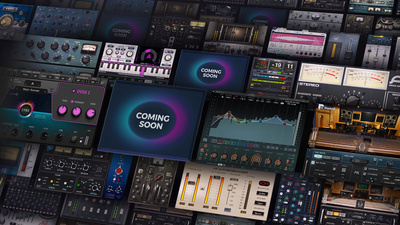


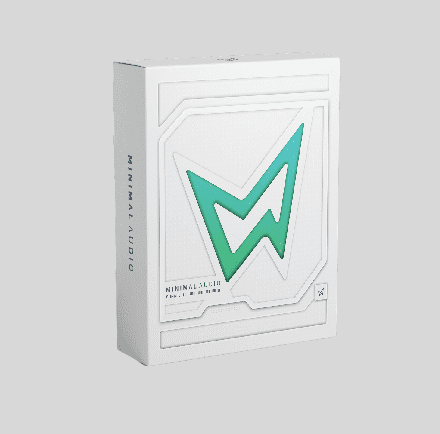
Plugin Subscriptions: Keeping the wolves at bay
When Current dropped, it was as if Minimal Audio had come out in favour of cannibalism. The situation was so toxic, YouTubers who had prepared advance reviews and reaction videos immediately distanced themselves from the furore.
There are many plugin subscription services now but the difference between general dislike and outright outrage in their existence is having a perpetual license option. Roland Cloud, one of the first services of note and an early punching bag for anti-sub sentiment, offers perpetual licenses (what Roland calls Lifetime Keys) for all Cloud products. That seems to make all the difference. As long as there’s an option to purchase, the wolves are kept at bay. They may still howl but they’re much less likely to attack.
Another subscription option that placates producers is getting to keep rented plugins for free after a certain point. Plugin Alliance offers this with its Mega bundles, granting subscribers a selection of perpetual licenses for their choice of plugins after a year. For example, Mega L is $149.99 a year with three free plugins. You could easily exceed the value of $150 with three effects or soft synths.

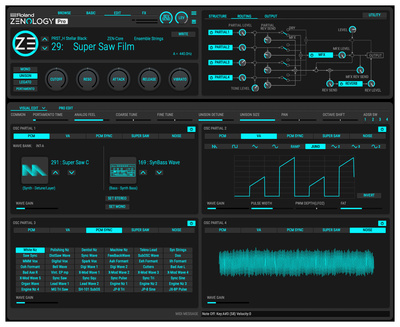
Plugin Subscriptions: The rent-to-own alternative
Rent-to-own offers you the affordability of a subscription with the added bonus of being able to keep the plugins when you’re done. Plugin Alliance has a bundle of all its products, the appropriately named PA All Bundle, in a rent-to-own payment scheme whereby you can use the plugins as long as you keep paying. Once the payments have been completed, they are yours to keep. Sample company Splice offers a similar plan for many popular plugins, including Xfer Records’ Serum. (Or try these Serum alternatives.)
Plugin Subscriptions: Benefits of subscriptions
Despite the antipathy for them, subscription services are popular enough for most developers to offer them in some capacity. Why are people using them? Of the many negative responses to my Facebook poll, one who came out on the side of subs was YouTuber Starsky Carr. He offered to expand on his reasons for using subscription services for this article.
First and foremost, Carr finds that subscription models can be cost-effective. “I have … spent a small fortune on various plugins over the years,” he says. “My initial reaction to the subscription model was the same as most others, in that I felt I’d rather own the software outright. But once I looked at my previous 12 months’ spend on plugin ‘sales’ and compared it to something like the Plugin Alliance or Roland Cloud subscriptions, I changed my mind.”
Access is also something that he likes. “With the subscription model you have access to everything,” he explains, “which in itself takes away hours of procrastination and research into what the benefits might be of purchasing the latest emulation. You just have it, end of.”
He also likes subscriptions because of the updates, the price of which is included in the subscription. “Software companies have to keep up with OS updates,” he says, “and we can’t expect them to do this in perpetuity for free. … The software houses have the predictable funds to continually upgrade and innovate and we have access to everything we need.”
Plugin Subscriptions: Conclusion
There are clearly benefits to the subscription model. On a personal level, I don’t subscribe to any music plugins although I do pay every month for access to Photoshop. I need it to make the lead images that appear in these kinds of stories. I certainly couldn’t afford Photoshop any other way. As for why I don’t subscribe to music software, that also comes down to finances. And, I must admit, I have reservations about paying for something that I don’t get to keep.
I have the suspicion that this last issue—not being able to keep the plugin—is more of a sticking point for older people. I’m from a generation that bought physical media. We like things that you can hold onto. Software may not have a physical component but at least we can say that we own it. Perpetually renting feels like being taken advantage of. I wonder if young people have these same kinds of hangups.
“My advice,” sums up Carr, “would be to bite the bullet, pick (a subscription bundle) and stick with it. … There’s nothing to stop you picking up other interesting or unique software along the way, but if you can’t make professional tracks using any of the major subscriptions it’s probably not the software’s fault.”
Where do you stand on the issue? Let me know in the comments. If you could also say your age or generation, that would be helpful so I can test my theory about age and a desire to own things.
Information
- All about subscriptions
- All about software
13 responses to “Plugin Subscriptions: Why the hate? Should you go perpetual?”
 1,6 / 5,0 |
1,6 / 5,0 | 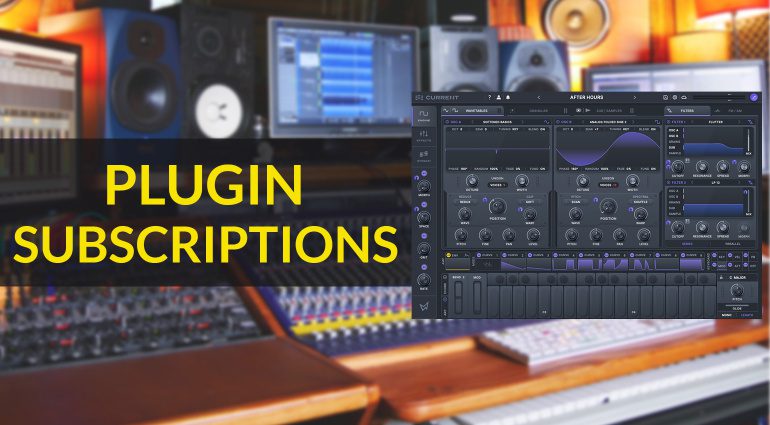

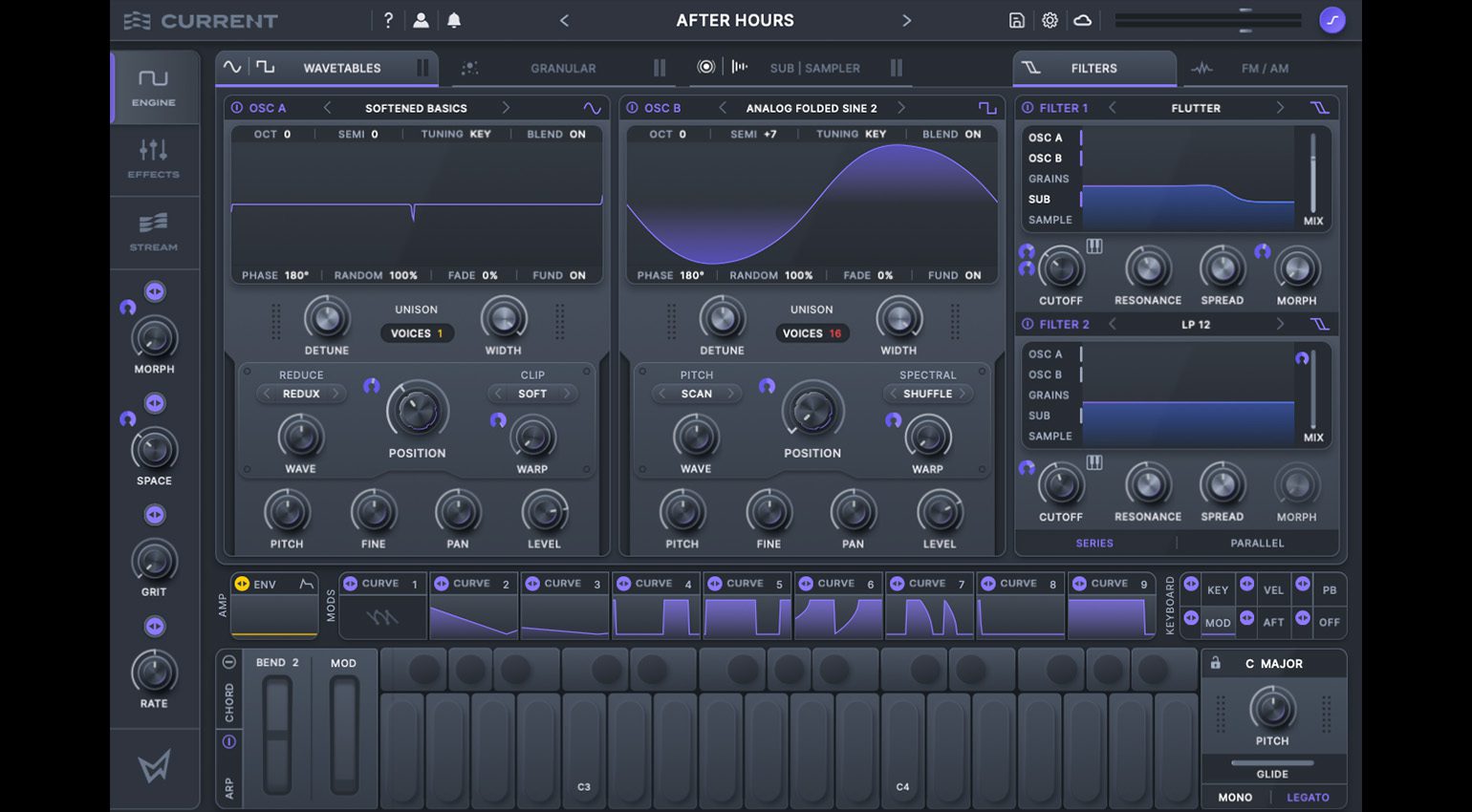
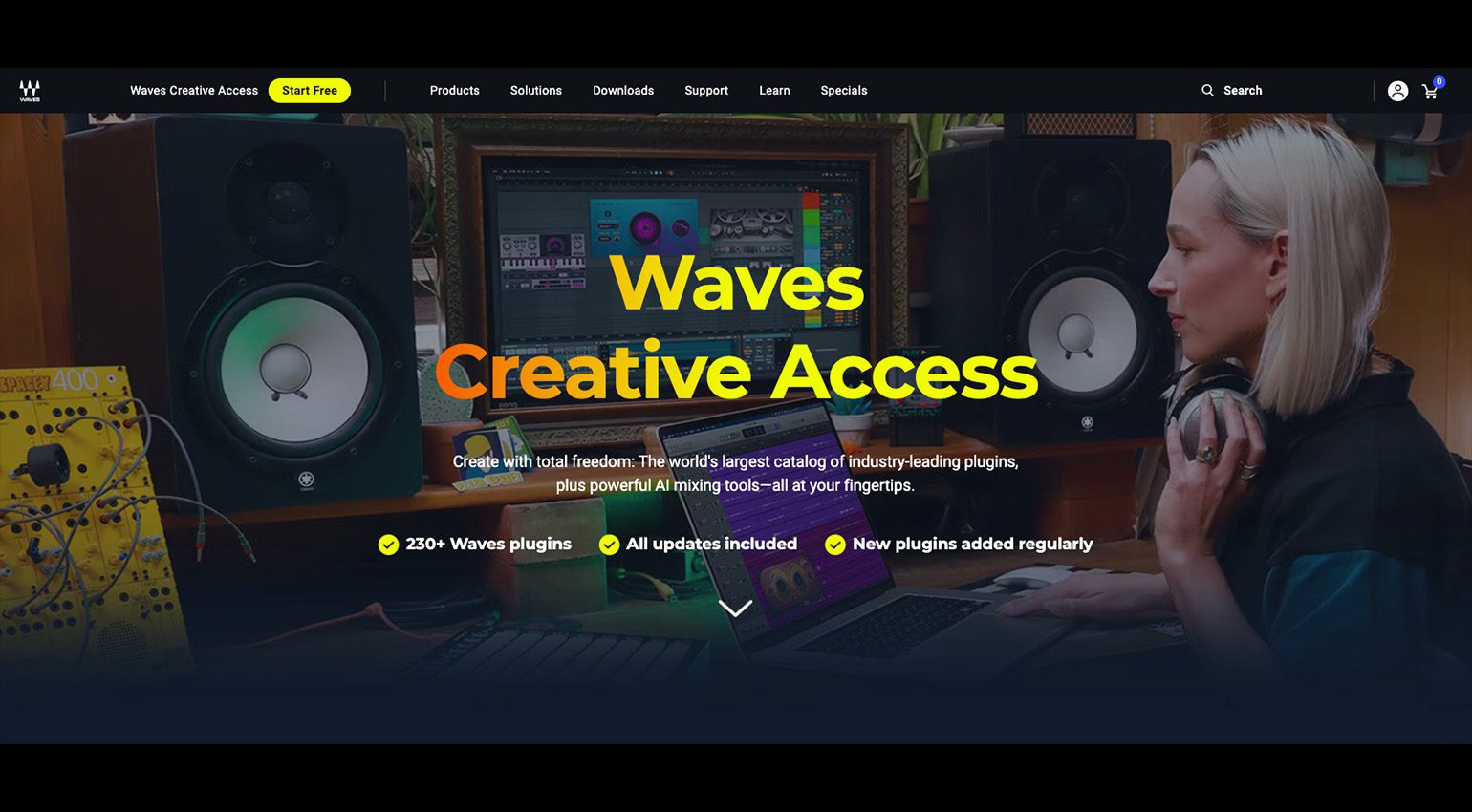


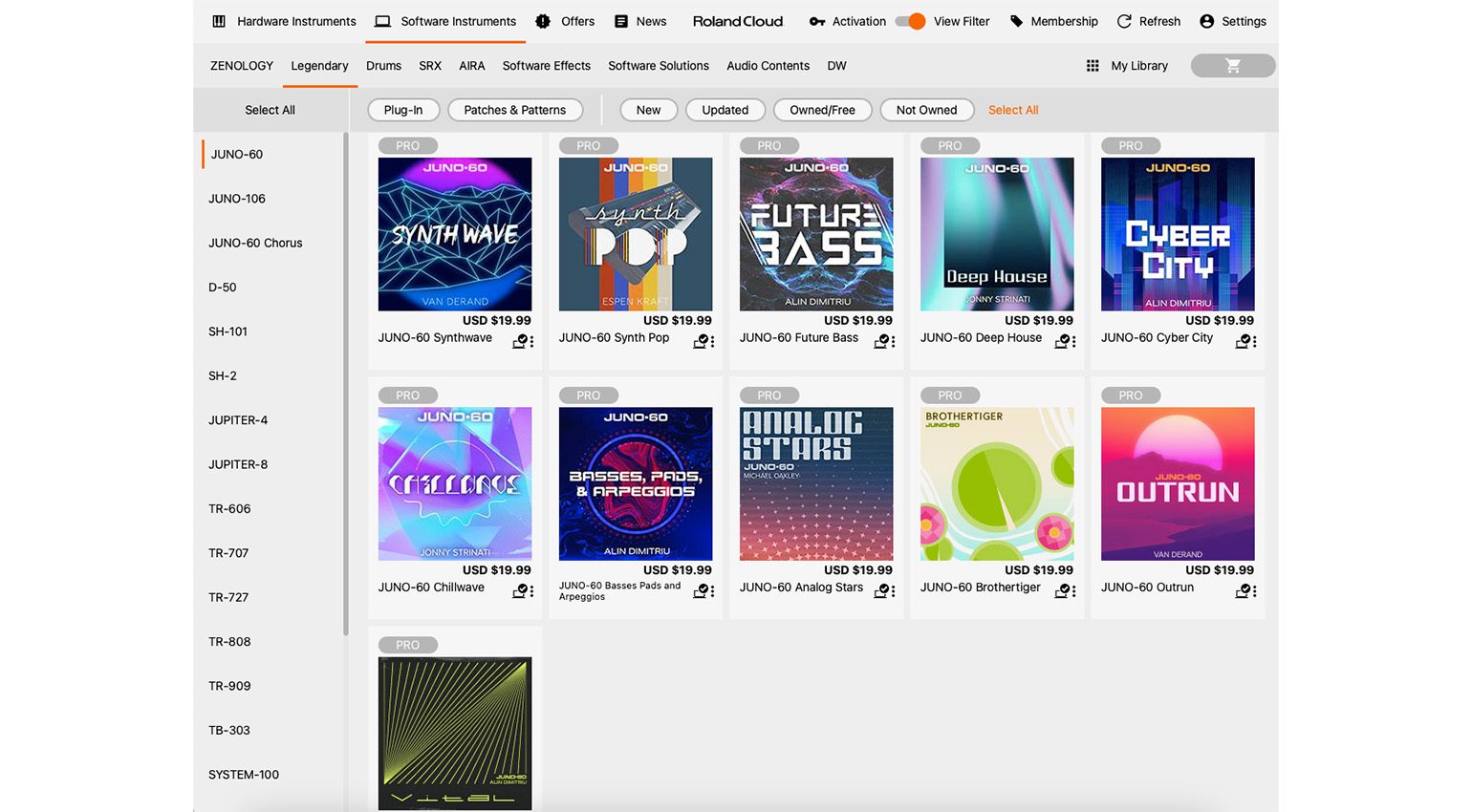
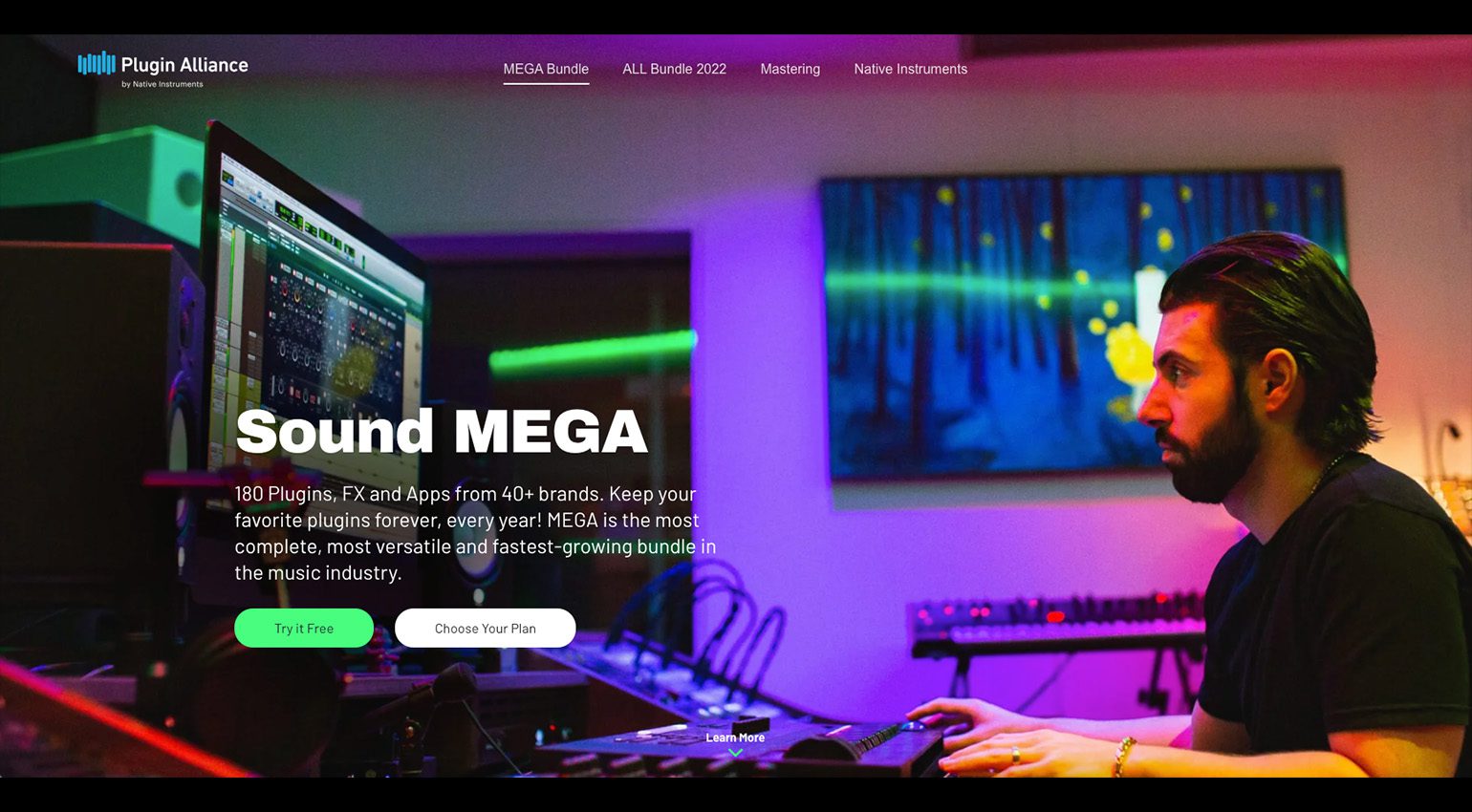
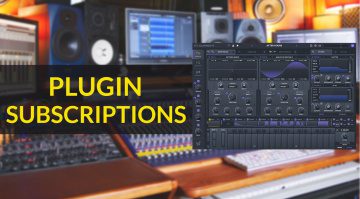





Any brand that does subscription only will be removed from my DAW for upcoming projects.
We all HATE the subscriptions, the only people who like it are people with no funding and no long term plan, and they get screwed up anyway because renting ends up being more expensive, they wouldn’t push for it if not. For the pros, this is putting an additional timer on top of everything that already has a timer! It’s unacceptable.
Personally, I am under Studio One and the stock plugins are so good that I stopped using plugins for most of what is included. And for virtual instruments, I rely on the fewest I can. Falcon does almost everything and a few specialized permanent licenses and that are enough for 95 percent of use cases.
I stopped using Adobe products (Photoshop, etc.) the minute they moved to a subscription model. I will NEVER subscribe to use software. EVER. Music software companies have such shady practices (like ‘purchasing’ products that have hidden expiration dates, charging for upgrades, spyware, installing outdated operational software in order to run their crappy products, etc. etc. etc.) that I invested 30,000 dollars in hardware, despite the obvious convenience of software. Subscriptions only benefit the company, not the customer. I know, I used to work for a software company. What a sleazy practice.
Dumped Waves with their stupid shite. Why bother when there are plenty of worthy alternatives without the BS including SoundToys, Eventide, Native Instruments, Izotope, U-He, Arturia- the list goes on.
Don’t forget the horrid Roland Cloud restrictions. If you try to sell Roland Cloud expansions or want to transfer them to a different hardware/Owner, you cannot, even though Roland agreement says yes with a caveat being g as long as you yourself do not retain the software. Scott Synth Stuff channel confirmed this too. The expansions can only be used with the original hardware. If I happen to sell the hardware, I am stuck with the software which will be unusable. Classic Roland money grabbing BS.
For music professionals it may make sense in some cases; for casuals like me, not at all.
Subscription models are bad.
Good for companies – Ongoing cash flow.
Bad for users – Ongoing cash flow, inability to open project in the future with plugin that you unsubscribed for. Feels like money grab. Most users are happy to pay once and own plugin. If I pay monthly to Spotify, netflix, now also apple TV / Amazon / Disney… Last thing I want is another “small” subscription fee for anything. Enough of that.
GenX here. I hate subscriptions and will NEVER EVER buy into one as long as my life does not depend on it. Appartments, cars and TV are about the only things I will ever rent. No apps will be ever rented. I would not rent instruments or any other hardware either, because one gets used to a piece of gear and starts loving it. Yes, I want to own what I bought with my hard-earned money. Rent-to-own could be an option though, but not subscriptions!
No one needs EVERY plugin. No one. Period. It’s just hoarding. Believing you got a “deal” for a plugin you may/may never use. We’ve all regrettably been there. IMHO this also comes down to dev reputation. Softube for example, has excellent plugins, service and updates/further development at a decent cost to the consumer. They have a pretty great reputation for not being a cringe dev. Reputation is the key word here. Waves is DEAD to me. UAD is becoming slimy with their spark business practices devaluing their once incredibly expensive (now deeply discounted) plugin vault. UVI has also been pretty top notch on all bases. In the end, they will all crumble and move on. It will end up being one dude developing and selling his plugs solo, and this whole thing will start again. See a pattern? Subscription models are going to die a brutal Blockbuster video death because people are just sick of the price hikes vs. value. It’s unjustified, but it moves on a relative scale (unfortunately) this is the nature of a VERY ugly post-pandemic beast. At this very moment there are apps JUST to manage your subscriptions. Soon, it will be too costly. Death to subscription models everywhere. Devs will start building plugins into DAWS (which is a whole nother’ debocle within itself) but mark my words. DAWS better get with the program, or we’re going back to tape recorders.
With the subscription every brand wants you to use only their product, dumbing you down to select and choose the best tools from different companies.
Lately I have seen a couple of coworkers freaking out because they was thinking their subscription was suspended (due to server problem, bad connection of random log out) and their face were so scared! Is that how you want to live / work / have fun?
There is no subscription for me. I buy what I can afford and I use it to make money; then I choose when and how much I want to spend again.
Dumped PA, Waves and Adobe for this, and I am living good.
Anyway a couple of artists I discovered from Spotify are no more there. Remember with a subscription you get what they want at the time they want……
Biggest issue with subscription plug-ins… What happens if you need to revisit a legacy project a few years after the plug-in dev stopped renting it?
You now have to render every single element of a mix (pre and post plug-in) just in case the subscription is no longer available. I’ve had customers wanting to revisit projects years after initial mix.
I will NEVER rent a plug-in unless it has an ownership path.
OK, The price of audio plug-in is $30 no matter how it is good. Most company discount up to $30. Some company put price tag $30 without sale. Wait or not, it’s fare to customer. But it’s not enough to pay all employee for the company. So they started to charge every month. Now, it’s your turn. You just stop expecting new product or update. Or you pay every month even though you would not need any other plug-in while you don’t even make money with your song.
Then you have companies like SSL who say that they have perpetual licenses but then charge outrageous prices for a single plugin, pretty much guaranteeing that nobody will buy a single plugin.
Anyone who is pro subscription has a financial submission kink and should be shamed for it.
Plenty of adobe alternatives.
You are currently viewing a placeholder content from Facebook. To access the actual content, click the button below. Please note that doing so will share data with third-party providers.
More InformationYou are currently viewing a placeholder content from Instagram. To access the actual content, click the button below. Please note that doing so will share data with third-party providers.
More InformationYou are currently viewing a placeholder content from X. To access the actual content, click the button below. Please note that doing so will share data with third-party providers.
More Information